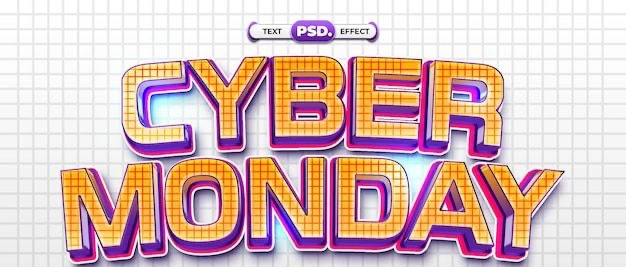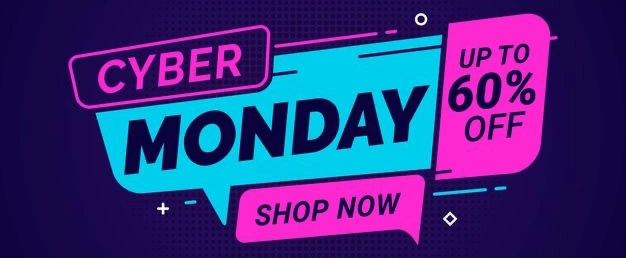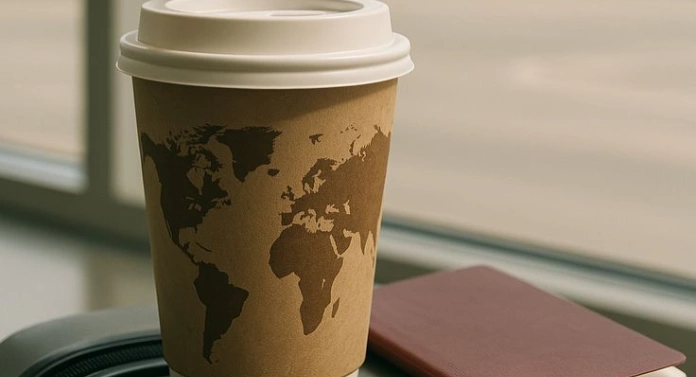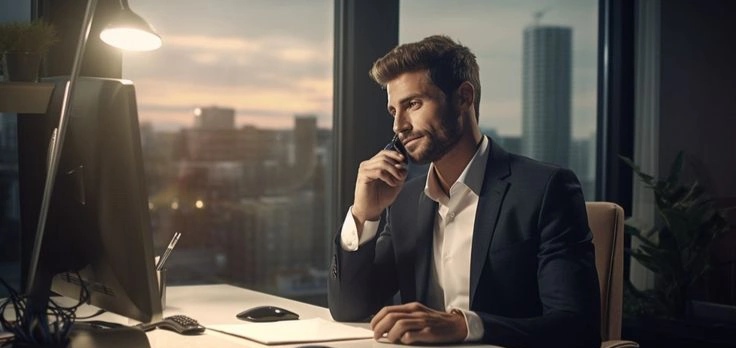Motivational Videos Posts on Crowch
Cyber Monday is an annual event that takes place on the Monday after Thanksgiving and Black Friday. While Black Friday was originally associated with traditional in-store shopping, Cyber Monday became the symbol of online sales, reflecting the rise of e-commerce in the digital age.
Origins
The term “Cyber Monday” was first introduced in 2005 by the National Retail Federation. Marketers noticed that on the first workday after Thanksgiving, online shopping activity spiked dramatically. This was partly because many people returned to work, where they had faster internet access, and began shopping online in large numbers.
This observation gave birth to the name and concept of a new “shopping holiday” specifically dedicated to online platforms.
Difference from Black Friday
The key difference between Cyber Monday and Black Friday lies in its digital focus. Black Friday was once all about waiting in long lines and rushing into crowded stores, while Cyber Monday was designed for those who preferred shopping from the comfort of their computers.

Over time, the boundaries blurred: Black Friday moved online, and Cyber Monday became part of a broader week-long sales marathon. Still, Cyber Monday continues to be strongly associated with the biggest discounts in online stores.
Scale and records
Cyber Monday has become one of the most profitable days of the year for e-commerce. In the United States alone, online sales on this day reach tens of billions of dollars annually. Electronics, home appliances, clothing, and household goods are among the most popular categories.
With the rise of mobile technology, Cyber Monday has grown even more. Today, the majority of purchases are made via smartphones, making shopping faster, easier, and more accessible.
Global expansion
Although Cyber Monday originated in the United States, it quickly spread worldwide. Today, online retailers across Europe, Latin America, Asia, and Australia participate in the event. In some countries, Cyber Monday has even surpassed Black Friday in popularity, as many shoppers find online purchases more convenient and safer.

Challenges and criticism
Despite its success, Cyber Monday has its critics. Some argue that it encourages overconsumption and unnecessary spending. Others point out that many discounts are more marketing tactic than real bargain, with prices artificially inflated before the sales.
Nevertheless, for millions of shoppers, Cyber Monday remains an opportunity to save money and buy desired products at better prices.
Conclusion
Cyber Monday has become a symbol of the digital shopping era, where technology defines consumer habits. It reflects not only the growth of online retail but also the shift in how people shop — from waiting in lines to buying with a single click. In the future, Cyber Monday is likely to continue growing, solidifying its role as a global celebration of e-commerce.
We live in a world full of noise — opinions, expectations, comparisons, other people’s lives on glowing screens. We try so hard to be “good enough,” to fit in, keep up, please others… until one day we wake up and ask: Who am I, without all of this?
Finding yourself isn’t about becoming someone new. It’s about returning to who you’ve always been — but forgot. It’s not a path forward — it’s a journey inward. Sometimes long, messy, filled with doubts, pain, pauses, and detours. But the most real journey there is.
To find yourself means learning how to be alone. Without distractions, without background noise, without the usual excuses. It’s that moment when you finally sit with your own thoughts — and don’t run from them. When you stop looking outward, and turn inward. When you no longer pretend, even to yourself.
Sometimes, finding yourself means losing a lot first — relationships, careers, comfort, illusions, expectations, people who held you, but never truly let you be. And in those losses, emptiness is born. Scary. Quiet. Lonely. But in that emptiness, there’s finally space for something new. For breath. For truth.
You begin to realize: you are not your job, your title, your social media likes. You are your feelings, your choices, your silence. You are what remains when everything external is stripped away. And when you finally look into the eyes of that “remaining self,” you see — you’ve always been whole. You just forgot.
Finding yourself is about honesty. The kind that burns. It’s admitting you’ve outgrown what once fit. That your interests have changed. That your life can no longer run on autopilot. It’s allowing yourself to evolve — even when it terrifies you.

And no, it’s not always beautiful. Sometimes, the search for self looks like sleepless nights, unexplained tears, loneliness in a crowd, inner battles with no clear winner. But in those raw moments, something real begins to grow — a connection with your core. With what’s true. With what’s you.
Often, we look for ourselves in others: in love, approval, admiration. But no one — not a partner, not a mentor, not even the most loving friend — can hand you the answer you’re seeking. Because that answer doesn’t live out there. It lives inside. And it arrives not with noise, but with quiet. Not quickly, but steadily. If you’re ready to listen.
To find yourself is not the end. It’s a beginning. The first step into a life that is truly yours. Where your "yes" comes with clarity and your "no" comes with self-respect. Where you choose presence over speed, depth over surface. Where you reclaim your most sacred right: to be yourself.

And then something beautiful happens. You stop struggling. You start simply being. And that state of being — is the most alive, most honest, most powerful thing there is.
Sometimes it feels like we know everything about ourselves. The familiar rhythm, the known routes, the same faces. We live within boundaries — of comfort, obligations, and thoughts. But the moment you pack your bag, close the door, and take that first step into the unknown, you realize: you are so much more than you thought.
Travel doesn’t just expand geography — it expands your inner world. It challenges your fears, habits, and assumptions. When you’re in a new city, surrounded by people who speak a different language, you're no longer defined by expectations. You simply are. And in that, you are free.
There’s a special feeling that arrives when you stand on the shore of a sea you’ve never seen before. Or ride a train through a country where you don’t understand the names of the stations. It’s not loneliness — it’s clarity. You hear yourself. You see the world without the filter of routine.
On the road, you learn to trust. Yourself — when things don’t go as planned. People — when they help without asking for anything in return. Simplicity — when happiness fits into a cup of coffee at a train station or in the silence under foreign stars.

Every journey changes you. Sometimes subtly. Sometimes forever. You return different: with a new perspective, stories inside you, and the sense that the world has come a little closer. You begin to understand: anything is possible. All it takes is the courage to begin.
We weren’t born to stay in one place. There’s a call to movement in each of us — a need to discover. And it doesn’t matter how far you go. What matters is how you grow.

Sometimes, to find yourself, you just need to get lost.In a new city. In a new language. In a new way of seeing life.
In today’s world, success is often measured by how busy we are — full schedules, constant achievements, rapid career growth, and never-ending productivity. Phrases like “hustle harder,” “sleep is for the weak,” and “be available 24/7” have become modern mantras. But behind this glossy image of ambition lies one of the most widespread issues of the 21st century — burnout.
Burnout is not just being tired. It’s a deep mental, emotional, and physical exhaustion. It’s when even things you once loved doing start to feel heavy and meaningless. Tasks that used to excite you now create stress or indifference. You begin to feel disconnected from your work, yourself, and the people around you. Your focus drops, your sleep suffers, your body feels drained, and your mind can’t stop racing. At its worst, burnout leads to the thought: “I’m not good enough, and nothing I do matters.”
The causes of burnout are complex: too much workload, lack of boundaries, constant pressure to achieve, poor work-life balance, and internal perfectionism. It’s especially common among professionals who work with people — teachers, doctors, therapists, managers, caregivers. But anyone can burn out — even a freelancer or a student overloaded with expectations and deadlines.
What helps prevent burnout? First, awareness and self-care. It’s essential to listen to your body and mind, to recognize signs of fatigue, and to give yourself permission to rest — not just physically, but mentally and emotionally. Work-life balance is not a myth; it’s a survival strategy. Sleep, hobbies, physical movement, social connection, silence — these are not luxuries. They are fuel for real, sustainable productivity.
Second, it’s important to re-evaluate your goals and expectations. You don’t have to be perfect. You don’t have to do everything. Learn to prioritize, delegate, set boundaries, and remember that your worth is not measured by your inbox or your output.

In today’s world, success is often measured by how busy we are — packed calendars, long hours, back-to-back meetings, relentless side hustles, and constant online presence. Phrases like “hustle harder,” “sleep is for the weak,” and “always be grinding” have become the unofficial slogans of modern ambition. Productivity is idolized. Stillness is dismissed. But behind this relentless push for achievement lies one of the most silent and widespread challenges of our time: burnout.
Burnout is not just being tired. It’s a deep, chronic state of mental, emotional, and physical exhaustion. It’s the feeling of being stretched so thin that even basic tasks feel overwhelming. It's when things that once brought you joy now bring stress, numbness, or dread. Your motivation fades, your energy drains, your mind feels foggy, and even rest doesn’t seem to help. At its worst, burnout whispers dangerous thoughts: “I’m not enough.” “What’s the point?”
This isn’t weakness. It’s a human response to sustained pressure without recovery. The causes of burnout are varied and complex:
- Unrealistic workloads
- Constant pressure to perform
- Lack of boundaries between work and personal life
- Emotional labor, especially in caregiving roles
- Perfectionism and the internal belief that rest must be earned
Burnout is especially common among people in high-responsibility or emotionally demanding professions — teachers, doctors, therapists, social workers, caregivers, managers. But it can affect anyone: a student burdened with deadlines, a remote worker never fully logging off, or a stay-at-home parent juggling invisible labor.

So, what helps?
First: Awareness. Recognize the signs. Burnout often starts subtly — trouble sleeping, irritability, lack of motivation, brain fog. Your body knows before your mind does. Listen to it. Rest isn’t a reward — it’s a biological need. Sleep, breaks, hobbies, human connection, solitude, creativity — these are not indulgences. They are fuel.
Second: Boundaries. Learn to say no. You are not obligated to be everything for everyone. It’s okay to log off. It’s okay to delegate. It’s okay to slow down. Reevaluate what truly matters. Is the endless hustle aligned with your values, or just a reaction to outside pressure?
Third: Redefine success. Productivity doesn’t equal worth. You are not your job title, your income, or your to-do list. You are a whole human being, worthy of rest, joy, care, and connection — even when you’re not achieving anything.
Sometimes, the most radical act in a burnout culture is to pause. To breathe. To ask yourself:“What do I need — not to be more productive, but to feel alive?”
Burnout is not a personal failure — it’s a collective issue, rooted in systems and expectations that glorify overwork and ignore well-being. The antidote begins with compassion. With permission. With stepping out of autopilot and remembering: life is more than output.
You don’t have to earn your rest.You don’t have to prove your worth.You are enough — as you are.
Burnout is not a weakness — it’s a warning sign. It’s a red flag telling you to pause, take a breath, and ask: Why am I doing all this? Work is a part of life — not life itself. Your value as a person isn’t defined by performance metrics, paychecks, or promotions. You are more than what you produce.